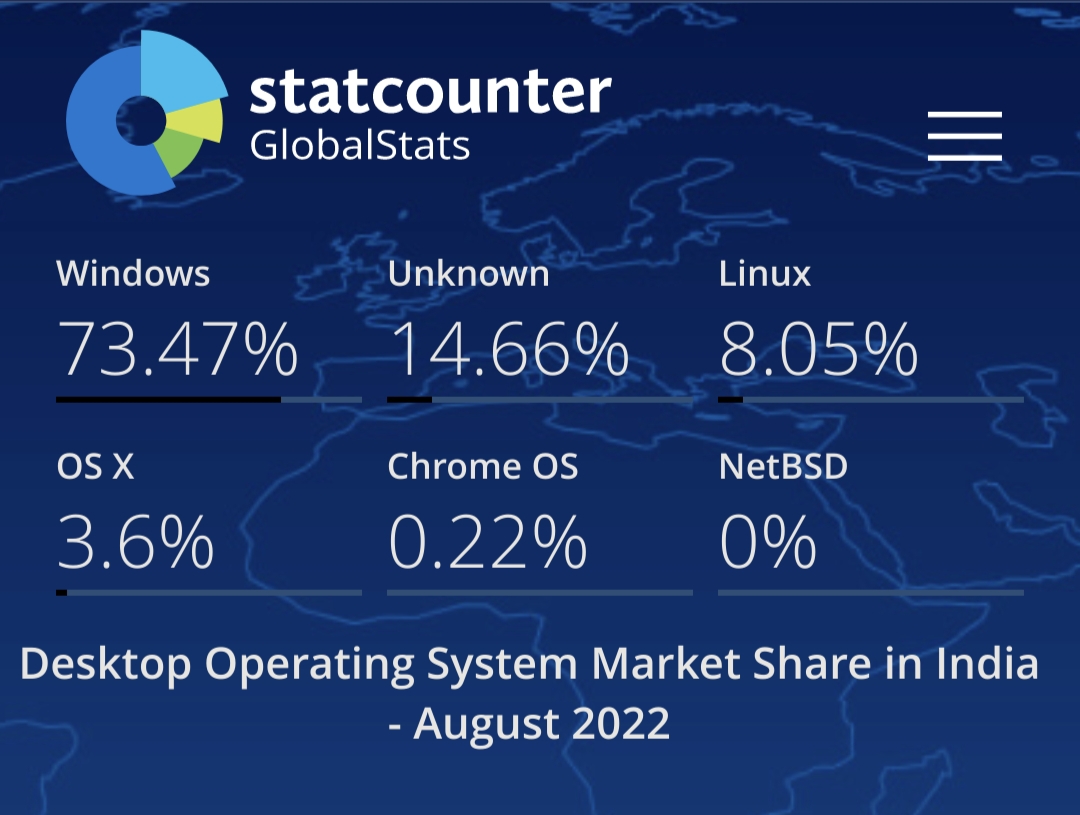this post was submitted on 07 Nov 2023
808 points (97.3% liked)
Linux
48329 readers
677 users here now
From Wikipedia, the free encyclopedia
Linux is a family of open source Unix-like operating systems based on the Linux kernel, an operating system kernel first released on September 17, 1991 by Linus Torvalds. Linux is typically packaged in a Linux distribution (or distro for short).
Distributions include the Linux kernel and supporting system software and libraries, many of which are provided by the GNU Project. Many Linux distributions use the word "Linux" in their name, but the Free Software Foundation uses the name GNU/Linux to emphasize the importance of GNU software, causing some controversy.
Rules
- Posts must be relevant to operating systems running the Linux kernel. GNU/Linux or otherwise.
- No misinformation
- No NSFW content
- No hate speech, bigotry, etc
Related Communities
Community icon by Alpár-Etele Méder, licensed under CC BY 3.0
founded 5 years ago
MODERATORS
you are viewing a single comment's thread
view the rest of the comments
view the rest of the comments

Those wild spikes don't give me a lot of confidence in the data
That explains the popularity of "unknown OS" but not why it swings so wildly
Uhm what's re they using for this report... I would have assumed they would have gone with just taking the User Agent and similar which I guess that wouldn't matter on the modifications you say.
Yeah sure but you usually fake a real existing one so it would go into one of the categories not the Unknown.
This makes alot of sense I'll imagine the folk using Linux aren't using it out of choice but out of necessity due to linux being kinder to older hardware
The biggest spikes look like the correspond to new year. So my guess is that the spikes are vacations and show the difference between home PC and office PC usage.
You can see the same spikes on e.g. Googles IPv6 chart - when people are away from work IPv6 penetration goes up, when people are at work it goes down.